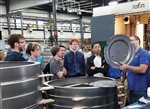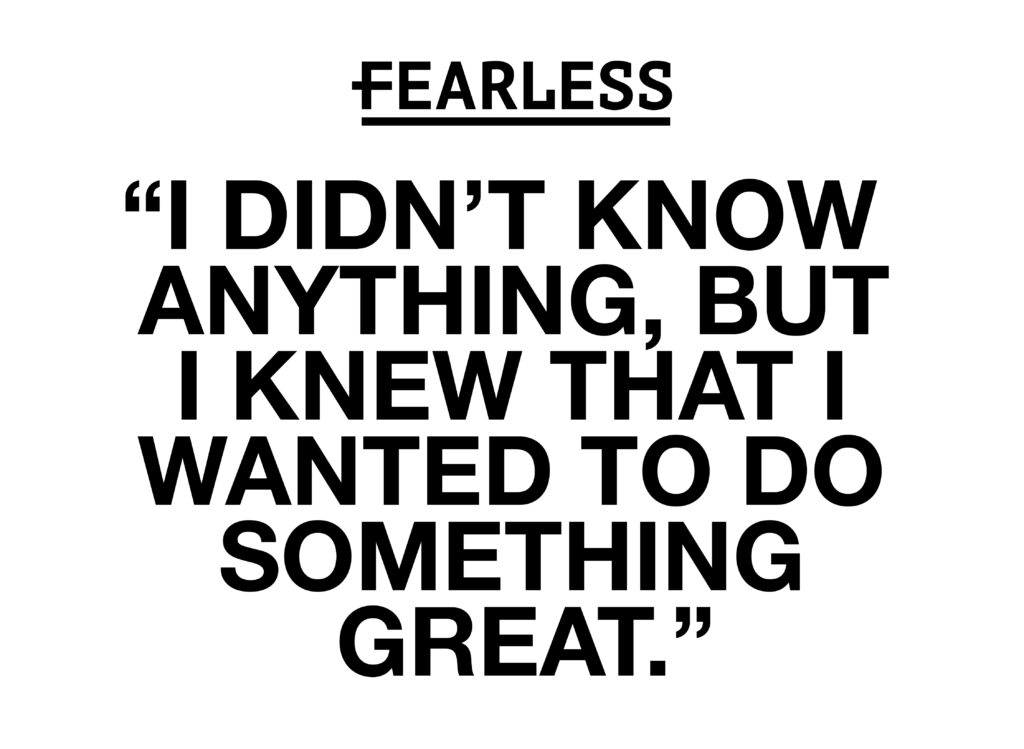Innovation – STEM best
Helping Iowa students 'fast-forward to their future career'

JOE GARDYASZ Oct 3, 2019 | 9:34 pm
4 min read time
1,032 wordsBusiness Record Insider, Innovation and EntrepreneurshipSamantha Boyle had long known that she wanted to be a nurse, but she wasn’t sure which of the many specialties within the field suited her best.
After a semester of hands-on experience and job shadowing through the CF CAPS program, the Cedar Falls High School 2019 graduate has set her sights on becoming a geriatric nurse.
A program of the Cedar Falls Community School District, CF CAPS (Cedar Falls Center for Advanced Professional Studies) offers students real-world work experience in small teams that tackle projects for participating employers in the Cedar Valley.
Cedar Falls’ program is among 50 initiatives across the state that have been selected by Iowa’s STEM Council over the past five years for the STEM BEST (Businesses Engaging Students and Teachers) program.
Launched in 2014, the goal of STEM BEST is “to meet the demand for uniting businesses and schools and create the organic development of STEM programs matching local industry strengths, challenges and resources,” according to the council’s website. STEM BEST awardees receive up to $25,000 each in state funding that employers and the schools match for equipment, training and curriculum development.
Now in its fifth semester of operation, CF CAPS is continuing to expand its reach, said Nate Clayberg, the program’s business liaison. Beginning with just 13 students in its initial semester, the program now has 140 students enrolled in four different professional strands, the newest being health care.
More than 20 Cedar Valley companies, as well as the University of Northern Iowa and Allen College, are currently collaborating with the school district to offer CAPS. In addition to health care, CAPS offers strands in manufacturing and technology, teacher education, and business communication and education.
“A big challenge today, which we’re hearing from our employers, is they want to have students who have good attitudes, who have some professional skills, have some direction and can think a little differently,” Clayberg said.
Participating students spend each afternoon at employers’ worksites, which vary from Viking Pump’s manufacturing headquarters in Cedar Falls to Covenant Medical Center in Waterloo.
“We thought it was key to get the students outside of the school building and into the real-world environment,” Clayberg said. “It changes the mindset, because they’ve now earned the respect of being adults, and they love that.”
Getting a taste of her future career choice and being treated as an adult resonates with Jordyn Carroll, a Cedar Falls senior in the teacher education strand. Held at the Schindler Education Center on the UNI campus, the program takes prospective teachers through a week of classroom experience with three different classes.
In the program, “you’re on a first-name basis with your teachers, which helps gain respect both ways,” she said. “And if I turned out not to like teaching, I wouldn’t be spending thousands of dollars in college to find that out, which is really nice.”
In Carroll’s case, after spending a week each with an eighth grade math class, a ninth grade Spanish class and a fifth grade elementary class, she discovered she enjoyed teaching fifth graders the most.
The program strives to prepare students with the skills they need to handle real-world projects for employers,” said Ethan Wiechmann, one of the CAPS instructors and an associate principal at Cedar Falls High School. That includes walking students through mock discovery meetings to practice their first meeting with their host company. They also learn about vital soft skills, from the introductory handshake and making eye contact to how to engage in small talk while navigating that long hallway to the boardroom.
Preparing the students well is part of the program’s goal to provide actual value to the partnering employers, Wiechmann said. “We know that every hour they’re going to spend on this is a billable hour for them. So we know that if we don’t provide value to them in a cost-effective way, we’re going to lose that partnership eventually because generosity runs out.”
Some of the value to the companies is what it adds to businesses’ culture, he said. “Our host sites are finding they love having the high schoolers in the building, because it brings an energy and engagement to their staff they’ve never had before. We have a lot of businesses already asking, ‘Can we get the next strand?’”
Kevin Harberts, president and CEO of Kryton Engineered Metals in Cedar Falls, found that inviting a team of high school students to take a fresh look at an old problem was just what was needed.
“Our very first interaction [with CAPS] was actually a home run for us,” said Harberts, whose company employs about 100 people. “We have a particular part we make for a Fortune 500 company down south. We just couldn’t make money on it — so we challenged the students to redesign it and cut costs.”
Kryton’s lead engineer came to Harberts one day and said, “I think these kids have got something. We’ve got to make some of these and try them.” “They turned out absolutely awesome,” Harberts said. Harberts called the client and invited them to fly to Cedar Falls to hear a presentation directly from the students.
“The CAPS kids came in and walked through everything with a PowerPoint, and the buyer grilled them with some really tough questions — and the kids did a great job,” he said. Although it took about a year for the large corporation to approve the change, the students’ innovation ultimately allowed Kryton to cut the part’s price by 8 percent and still make money on the project, Harberts said.
In addition to the successful project, the program also resulted in an early recruitment win for Kryton. After bringing on one of the students from the project, Kabeer Bhatia, for a summer internship, Kryton arranged to pay half his remaining tuition at Iowa State University, where he is now a freshman majoring in engineering. The company has committed to hiring him when he graduates.
After hosting three project teams so far, Harberts is looking forward to having 20 additional CAPS students coming this year.
“Talent is so hard to find right now, you’ve got to do things outside of the box to find these people,” Harberts said.










